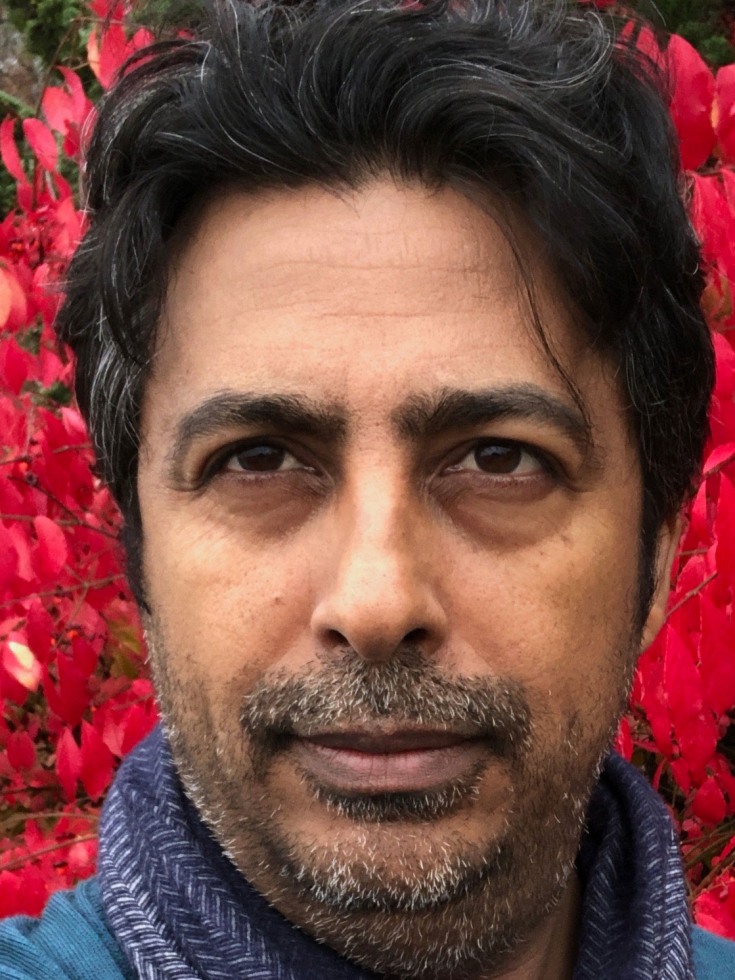Senior Lecturer in Arabic Miled Faiza
Miled Faiza discusses the role poetry has played in his life, from journeys into translation and teaching, to inspiring students and changing perspectives of the Arab world
Receiving an email written in Arabic from one of my former students or learning about their adventures in the Arab world still fills my heart with pride and energizes me to continue teaching Arabic, to share my passion for Arabic literature and literary translation.

Tell us a little bit about your background. What first drew you to poetry and translation?
Poetry has guided me to everything I can think of so far. I have long been fascinated with poetry, with the ability of languages to create parallel worlds that surpass reality in terms of beauty and possibilities. That’s what made me dive into world literature, in Arabic and French at first, and later in English. When I was young, I was fascinated by classical and modern Arabic poetry, and by Arabic and foreign novels. After all these years, I still remember the magical moments that came with reading the works of Mahmoud Darwish, Abou al-Qasem Chebbi, Níkos Kazantzákis, Umberto Eco, Arthur Rimbaud, Gabriel García Márquez, Wisława Szymborska, Yasunari Kawabata, and Chinua Achebe. Eventually, poetry led me to study Arabic language and literature and ultimately, to teach it. When I chose Arabic as a major in college, I was simply dreaming about learning the craft of writing and equipping myself with the tools I needed as a writer. From this standpoint, I can say that teaching was and still is grounded in my desire to share my passion for writing and reading with others, whether with family members, friends, or students. Poetry led me to translation early on as well. Reading exciting poetic texts leads naturally to the act of translation, which is an aesthetic dialogue with the texts of others. If reading a text in another language is a journey towards that text, then translation is a journey back, accompanied by what that text offered us and allowed us to take. This journey can be easy sometimes and difficult at other times, like all journeys we take in our lives.
What are you working on currently?
I am currently working on many projects. Sometimes I feel that I need more than one life to finish everything I aspire to do! I am working on translating an Arabic (Tunisian) novel into English, with Karen McNeil, and translating the fourth novel from Ali Smith’s Seasonal Quartet, Summer, into Arabic. I have already finished translating three parts of the quartet so far: Autumn, Winter, and Spring. I am also working on translating American poetry into Arabic, and Tunisian poetry into English, with the hope of compiling two anthologies of poetry in the near future. In addition to literary translation, I am also working on my third book of poetry, whose texts revolve around the themes of migration, exile, place, and memory.
This is your eleventh year teaching Arabic at Brown. What has surprised you the most about teaching here at Brown? And what do you hope your students will take away from your classes?
The years have passed quickly here in New England. What has surprised me most is the drive of some of my students here at Brown, and their dedication to studying Arabic. Some of them have even chosen to take their journey beyond Brown, to specialize in Arabic linguistics or literary translation, or move to Dubai, Cairo, or Tunis. Receiving an email written in Arabic from one of my former students or learning about their adventures in the Arab world still fills my heart with pride and energizes me to continue teaching Arabic, to share my passion for Arabic literature and literary translation.
For my classes in the Arabic program, I’m planning on expanding our offerings beyond just formal (written) Arabic, to include some of the major spoken varieties of Arabic. This will allow the students to have a greater connection with Arabic popular culture, and prepare them better for their studies abroad, or future careers, in the Arab world.
This ties into what I want my students to get out of my classes, which is not only the foundations of the Arabic language but also an appreciation for Arabic culture and literature. It’s also important to me that they get an understanding of the political views in the Arab world, to give them a perspective (on American intervention in the Arab world, or language ideologies, for example), that is different from the one they may have from growing up in the West.